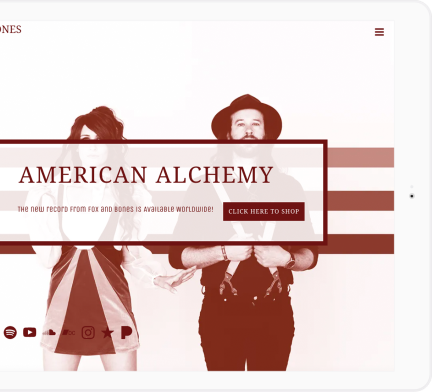Many people have asked me what it takes to be more productive in their musical pursuits.
The truth of the matter is that this can depend a lot on the individual and their existing habits.
That said, I’ve compiled some of the most common questions I use in my coaching below. You can use these to self-assess your current performance.
Just know the only way this will work is if you’re honest with your answers.
1. What have you accomplished so far?
Have you identified your major life accomplishments? What are they?
We don’t want to spend too much time staring into the rearview mirror, but it’s well worth acknowledging and celebrating what you’ve accomplished to this point, in music, and in life.
Most people don’t celebrate anything. Successful people celebrate even the smallest of victories.
2. What worked? What didn’t?
Success has a formula and it’s hidden in our routines. The problem is – we don’t reflect long enough to notice.
Thinking back on your accomplishments so far, what worked? What did you do to create the success you have? Who did you have to be?
Just as important, what didn’t work? What did you do that led to failure, or what didn’t you do that you should have done? Who were you in that moment?
Reflecting on these questions can help you identify a formula for creating future success.
3. What do you want to accomplish?
You can also ask, “What are my goals?”
Either way, it isn’t worth asking any more questions until we figure out what your motivation is. I don’t know too many people who want to get up an hour earlier to twiddle their thumbs. The bed is much too warm.
So, you need to figure out what is going to get you up an hour earlier.
Some of the more common answers I hear are:
- “Increase my music income”
- “Finish my next release – single, EP, or album”
- “Book a series of shows or a tour with my band”
- “Grow my social media following”
Whatever it might be, make sure it hits the bull’s eye for you. If possible, your goal should be so real to you that it wakes you up in the middle of the night.

Band website design made easy
Set your creativity free with dozens of stunning free band website templates, and easy custom design tools to make it yours.Design your website
4. Are you managing your health?
Although I am not a healthcare professional, I cannot recommend a more aggressive schedule to anyone without gaining a better understanding of their health habits. Here are several categories to think about:
- Are you getting sufficient sleep and rest?
- Are you eating healthy foods?
- Are you exercising, and if so, how often?
- Are you managing your stress levels, and if so, how?
- Do you book a vacation at least once per year, or once every quarter if your schedule is more aggressive?
Remember – health encompasses the mind and the body. Both need to be healthy for you to be a high performer. There is ongoing work involved in staying healthy.
5. Do you have a documented schedule?
I keep a schedule in Google Calendar myself, and every minute between 9 AM and 9 PM is time-boxed and accounted for.
But there’s one thing you need to understand – I create my schedule weekly, and I advise artists to do the same.
Sometimes artists will create a schedule for themselves once and follow the same routine for months, even years, without ever thinking about how their priorities have shifted over time.
Remember – your schedule serves you. You’re not supposed to be a slave to your schedule! Adjusting based on what’s important to you now, as well as what worked and what didn’t work is key to your success.
6. Do you have a to-do list?
I have found that while many artists do have to-do lists, they don’t always know how to work them.
Some make their lists and promptly forget about them. Some give up after completing one or two items. Others simply start at the top and work their way to the bottom.
When I create a to-do list, it’s typically for the day, not for the entire week or entire month. I prioritize one to three things per day and avoid loading myself up with unnecessary, low-value tasks.
Also note – I focus on one to three high-level priorities, not random errands. Errands need to be completed, but usually not at a frequency of more than once per day.
7. Do you spend at least an hour per day on your highest priority?
Most musicians know what they should be working on – vocal warmups, guitar riffs, lyric writing, etc. Yet it’s astounding how little time they end up dedicating to their craft.
Be honest. Are you spending at least an hour per day working on your next album, calling venues, or creating content?
Most artists either don’t do this, do it inconsistently, or wait until the weekend when they have little energy left to do what they’d originally set out to do.
If you’re spending an hour per day tackling your highest priority, you are miles ahead of most. You can do it.
8. Are you committed to being a lifelong learner?
Being a lifelong learner means that you’re always reading books, listening to podcasts, watching videos, and taking courses that help you grow. You never get to the point of saying, “I know it all.”
This doesn’t mean you won’t take breaks from personal development every now and again. But you’re never complacent, always curious, and always open to learning something new.
In my observation, the biggest difference between those who make fast progress in their careers and those who fall behind is this – the ones who move faster are committed to their growth and aren’t afraid of change.
You can start with the classics like Think and Grow Rich, The Magic of Thinking Big, and How to Win Friends and Influence People. These are all very beneficial, even in music.
When you’re ready, you should also read books like The 4-Hour Workweek, Content Inc., and Book Yourself Solid to sharpen your marketing and business skills.
9. Do you have the tools and resources you need to succeed?
I’ve just shared with you some of the most important questions I ask my students and clients, and multiple resources that will help you be more productive and reach your music career goals faster.
The only problem? Well, the above simply isn’t enough. Even if you do achieve clarity now and get yourself on track with your personal growth, at some point, the going will get rough, you’ll lose motivation, you’ll run out of books to read, or some adversity will show up in your life.
So, what’s one to do?
Well, you need the right tools and resources to make it happen. For instance, even if you got up one day and didn’t feel like practicing guitar… if your phone kept blaring at you to remind you to practice, you’d eventually give in, am I right?
This is what I call a structure – something that holds you accountable to the tasks, habits, and routines you’ve committed to. The right tools and resources help you create and follow these structures and fail-safes.
But it all starts with you, and your willingness to learn and to adapt to change.
If you’re willing to keep going, I want to invite you to pick up a copy of my new free book, Productivity, Performance & Profits Blackbook, which will act as a constant companion on your journey.



